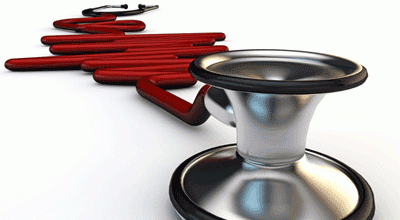
VITAL CHECKS FOR HEALTHY LIVES
What health tests should I take and when should I do them? Here’s a rough timeline you should follow for health tests and checkups!
Age: 18+
Testicles – Check yourself once a month for lumps after a warm bath or shower when the skin is relaxed to spot early signs of testicular cancer. The most common form is seen in men aged 15 to 45.
Smear test – This detects early abnormalities which could lead to cervical cancer, this is particularly important as there are no symptoms in the early stages.
Chlamydia – The most common sexually transmitted infection, you should get tested by your GP or at a family planning clinic every two years – or every year if you’ve had different sexual partners.
Age: 25+
Women aged 25 to 64 can take advantage of a free cervical screening at their GP’s surgery every three to five years.
Blood pressure – Untreated high blood pressure can lead to strokes and heart disease and has no symptoms, it’s best to get tested at least every five years, but more if there’s a family history of high blood pressure.
Blood glucose – This test shows early signs of type 2 diabetes. Over a million people may have diabetes without knowing it. Get a blood test once a year.
Age: 35+
Cholesterol – High cholesterol levels can lead to a heart attack or stroke. Get tested every five years if your cholesterol is in the normal range, but once a year if it’s high or if there is a family history.
Lungs – Pick up early signs of lung cancer, respiratory disease, asthma and chronic obstructive pulmonary disease (COPD). Get tested every five years or more often if you’re a smoker.
Age: 45+
Heart – This will detect warning signs of a heart attack and angina (chest pain). Symptoms include breathlessness and a tight, crushing sensation in the chest.
Breasts – Women aged 50 and over can get a free mammogram on the NHS, which can help detect breast cancer early. If you’ve got a family history of breast cancer and are under 40, you may be entitled to an earlier screening.
Osteoporosis – Osteoporosis is a condition that causes bones to become brittle and fragile. Most common in women over 50. If you show signs of early osteoporosis, a DEXA bone scan can help determine whether you have the condition or are at risk.
Prostate – This test will spot prostate cancer or benign prostate enlargement. Men over 50 experiencing urinary problems (frequent trips to the bathroom during the night) should see their GP who may suggest a PSA blood test.
Kidney disease test – The government recommends that everyone at high risk has a blood test for kidney disease every year. You are at raised risk of kidney disease if you have:
· diabetes
· high blood pressure
· vascular disease (conditions that affect the heart, arteries and veins)
· heart failure
· a close relative with kidney disease
Read more about getting your kidneys tested.
Glaucoma test – Glaucoma occurs when the fluid in the eye becomes blocked and pressure builds up. This can lead to damaged vision and may eventually cause blindness. Most cases of glaucoma are detected at a routine eye check-up. The NHS offers free sight tests to anyone over 60, those already diagnosed with the condition, and anyone over 40 who has a parent, sibling or child diagnosed with glaucoma. Read more about how to prevent glaucoma with regular sight tests.
Age: 60+
Bowel cancer screening – Under the NHS Bowel Cancer Screening Programme, men and women registered with a GP between 60 and 69 can be screened every two years (by request from 70 upwards). Screening aims to pick up bowel cancer at an early stage when treatment is likely to be more effective. You’ll automatically receive a faecal occult blood testing (FOBT) kit in the post which is is used to collect tiny samples from your bowel motions. You then return the test kit to a lab for analysis. If the result is abnormal, you’ll be invited to a local screening centre to discuss further testing.





